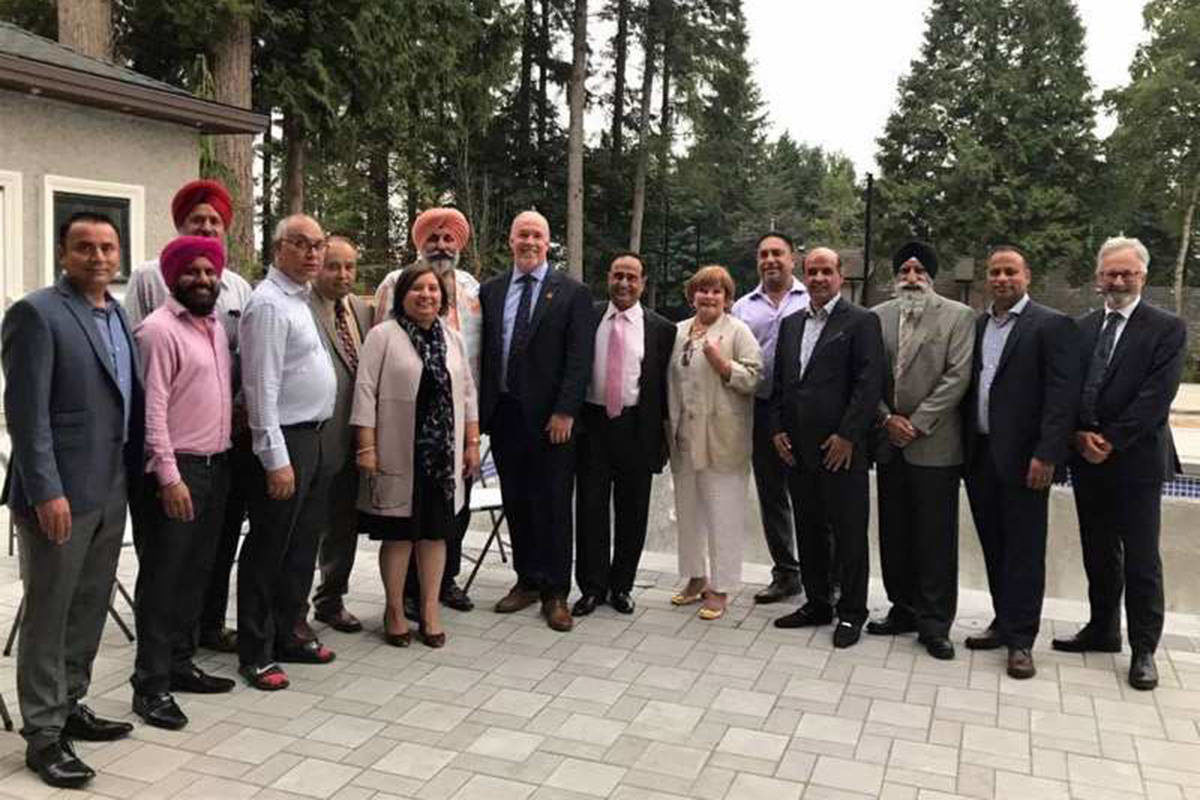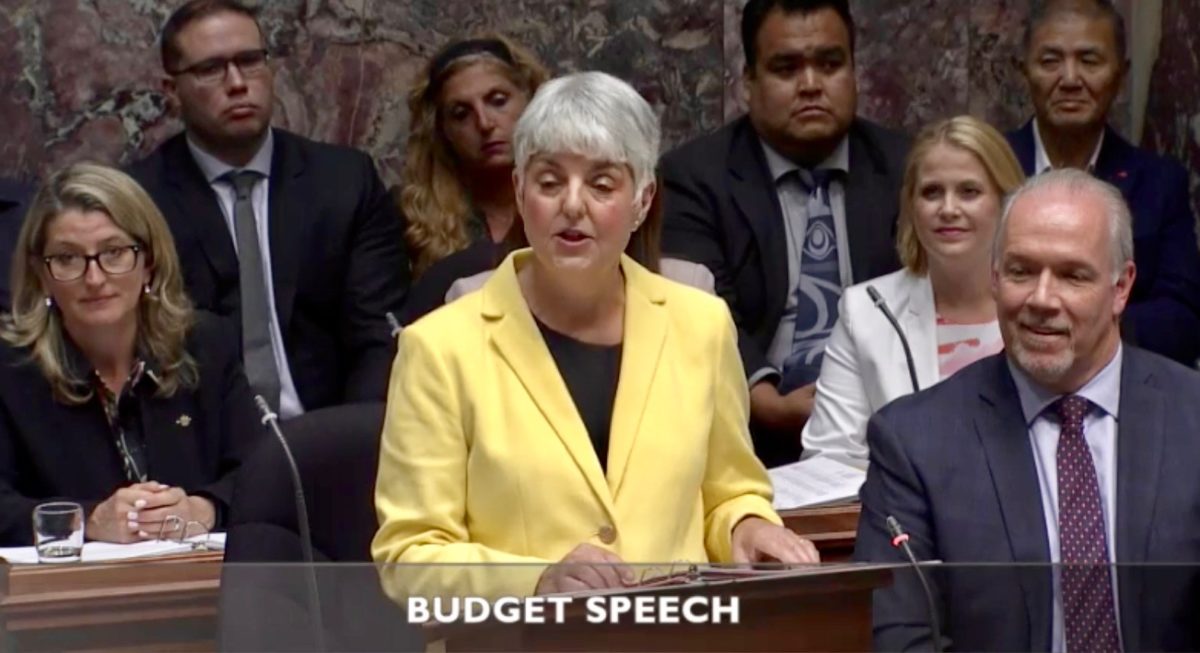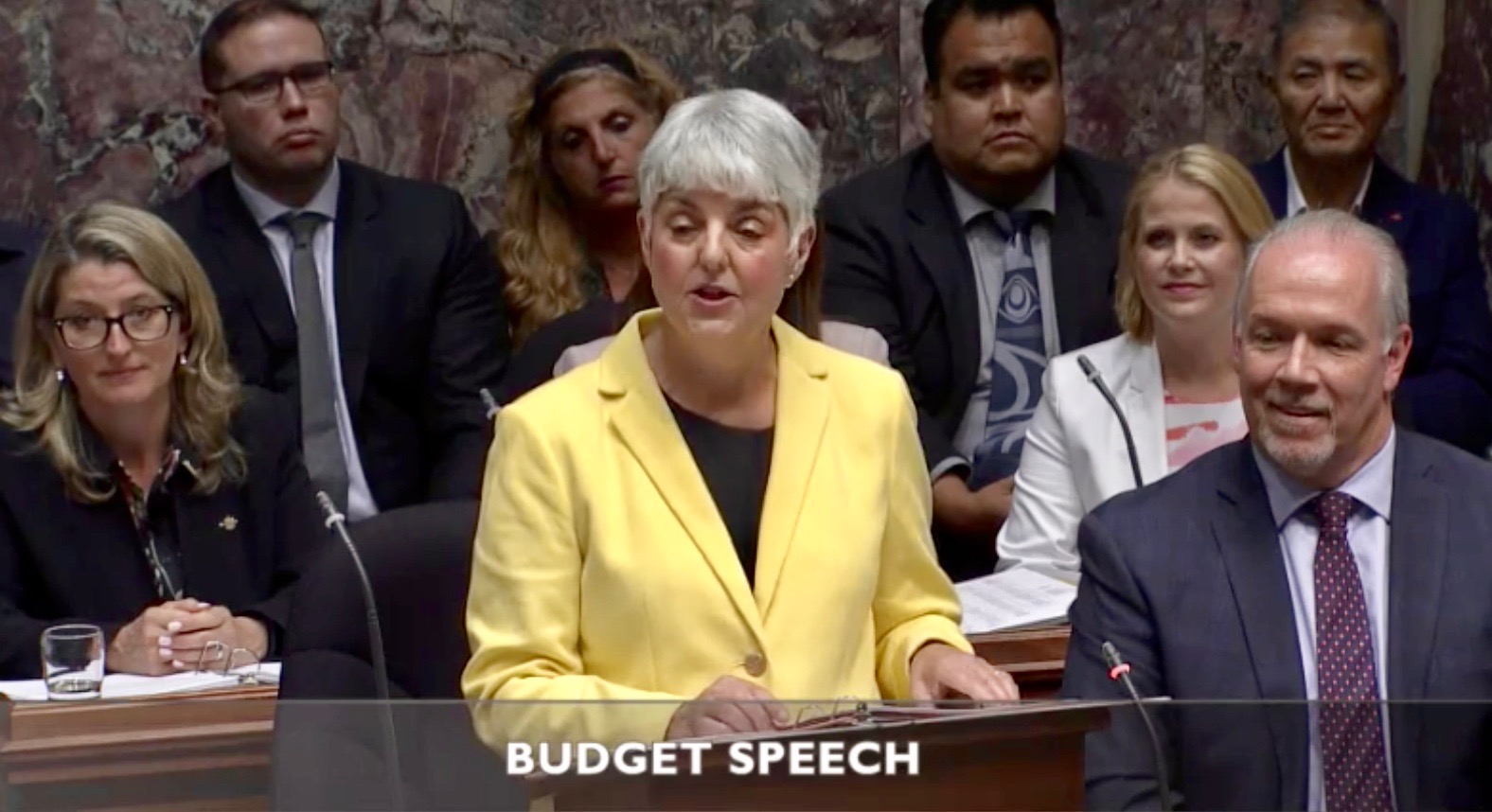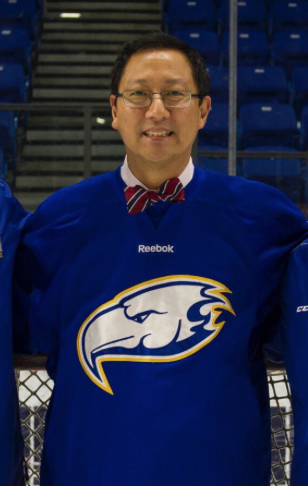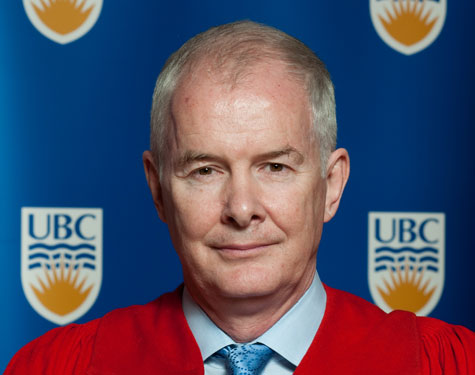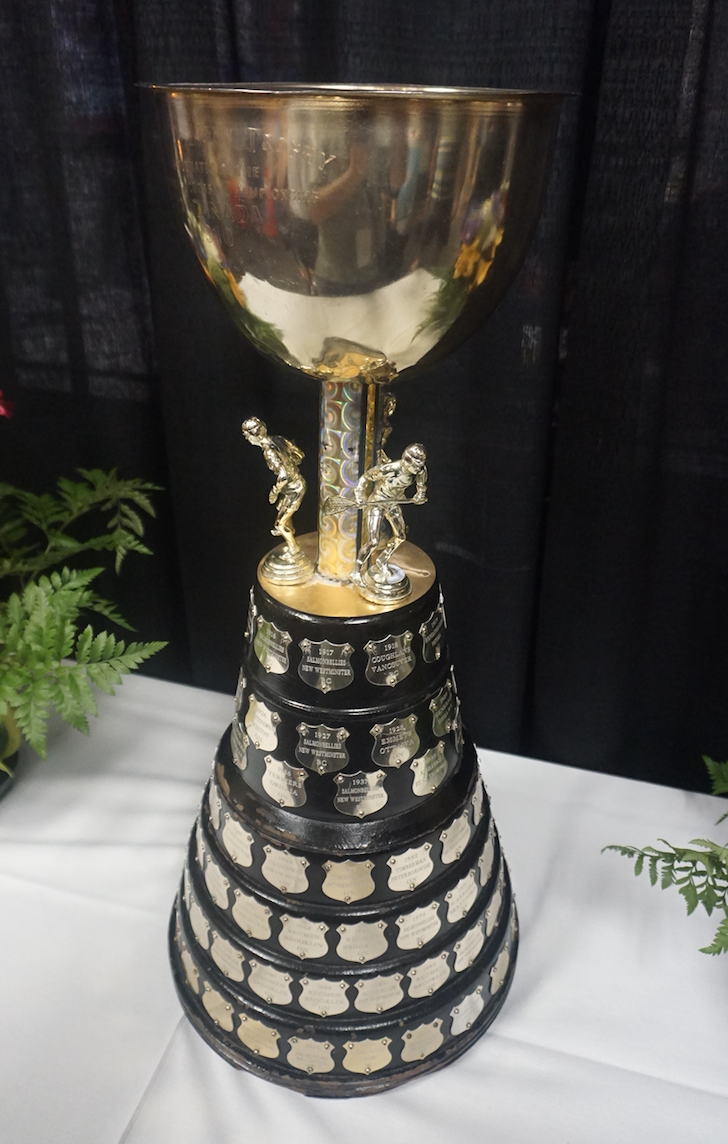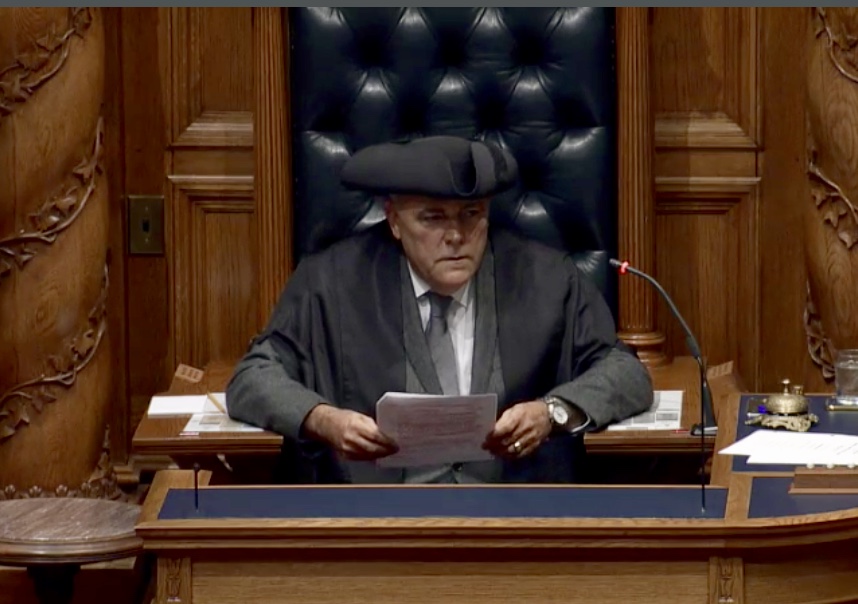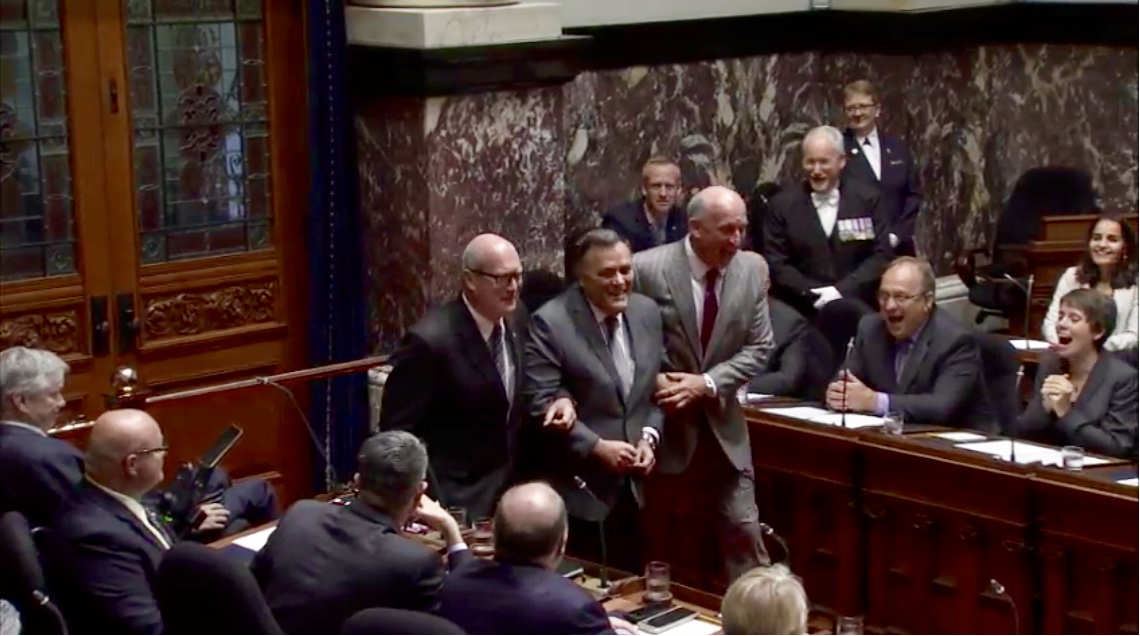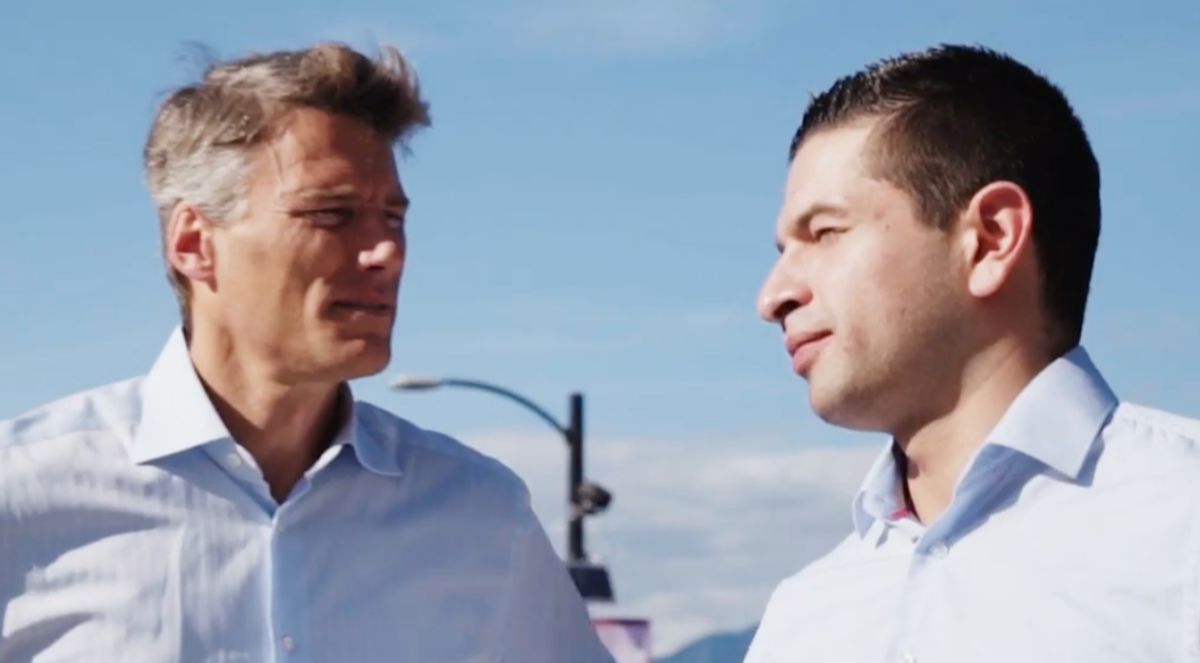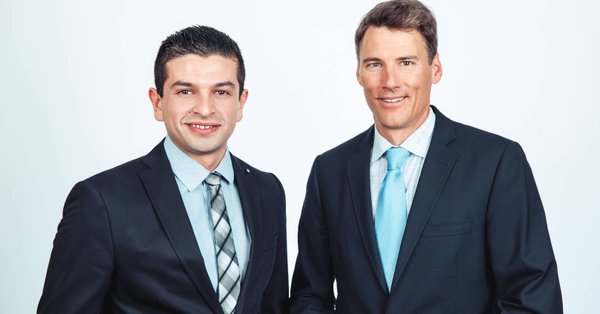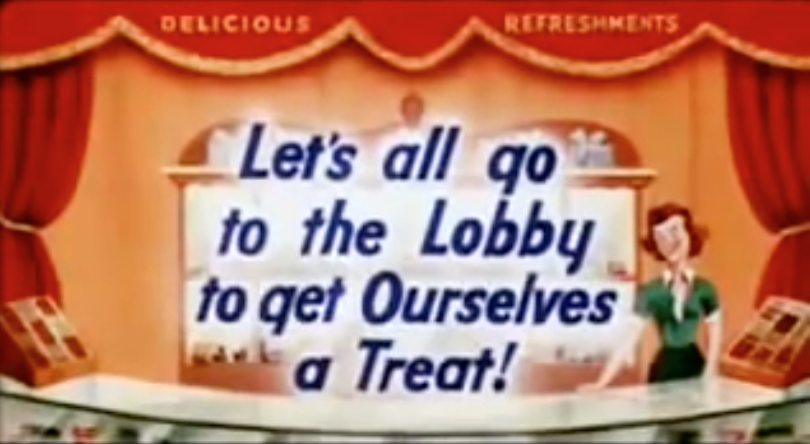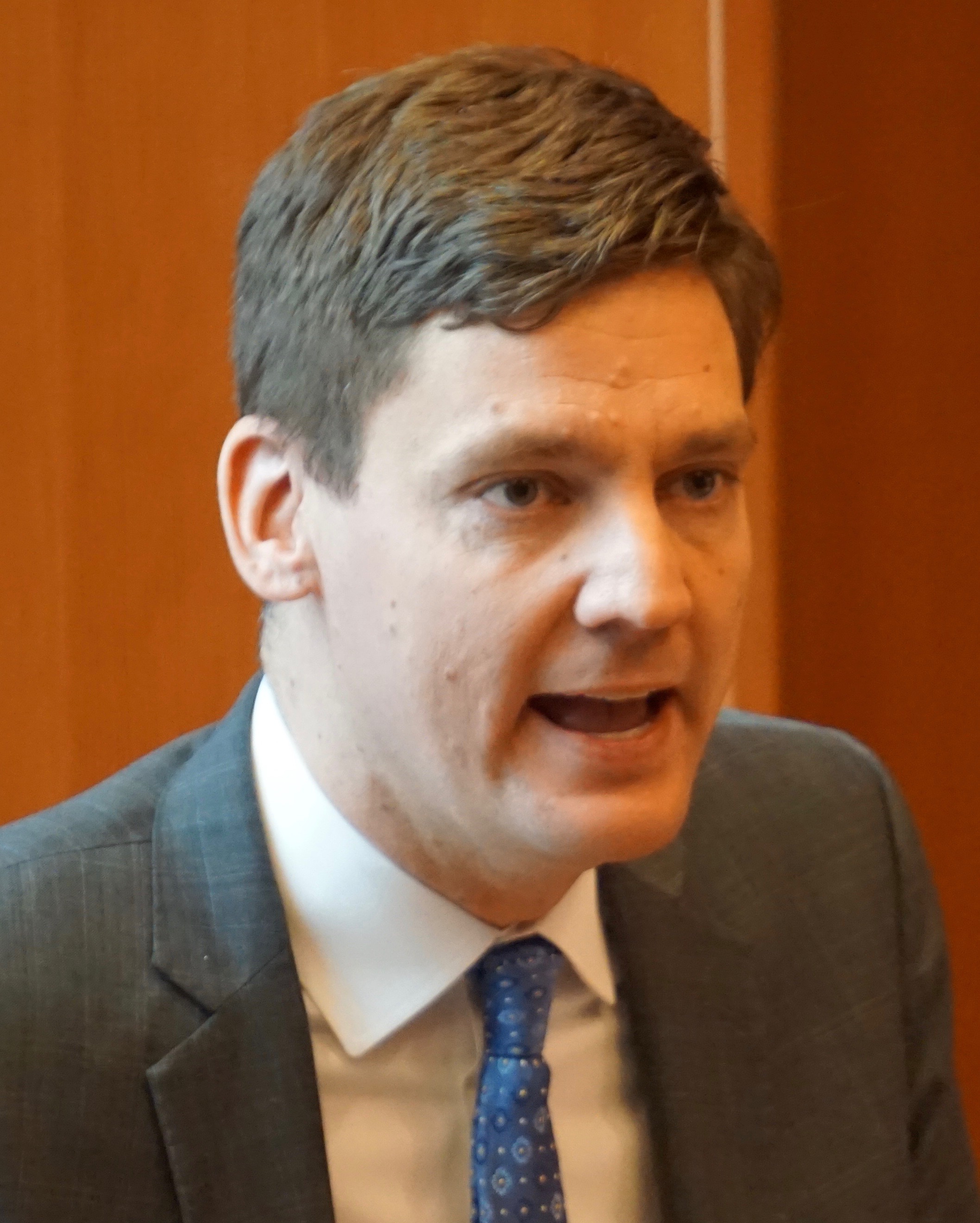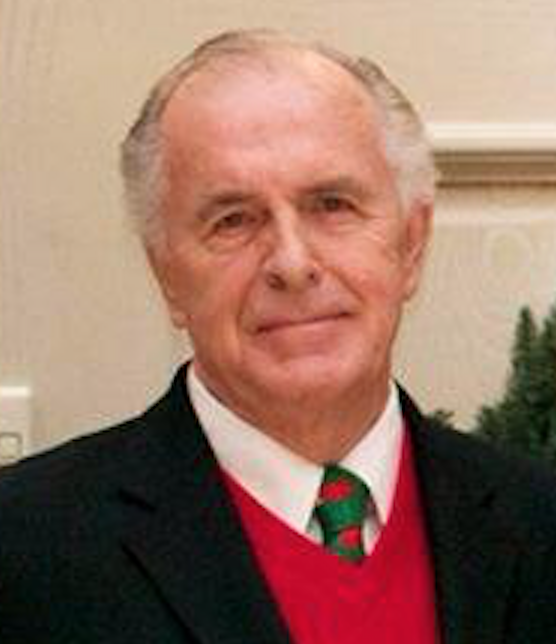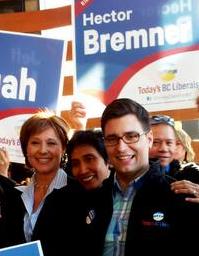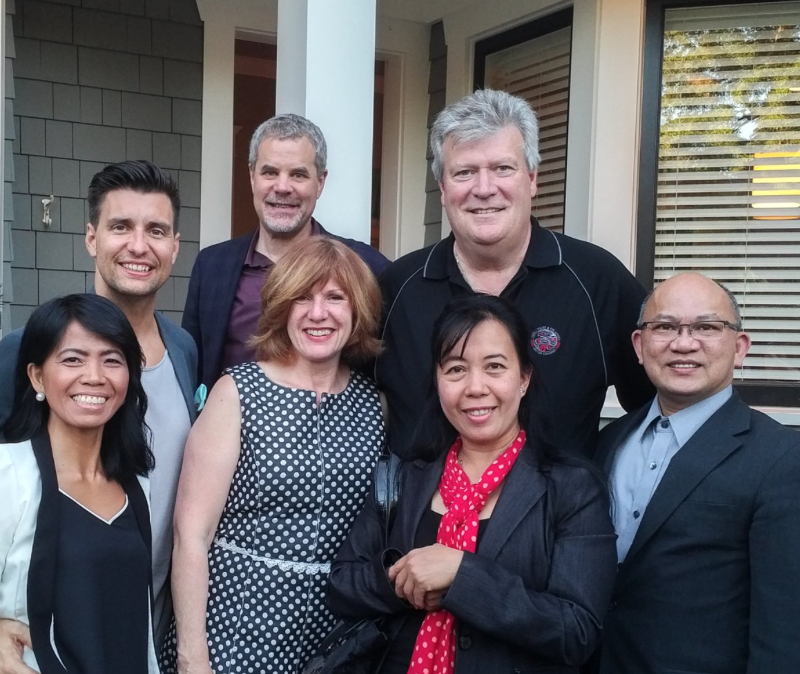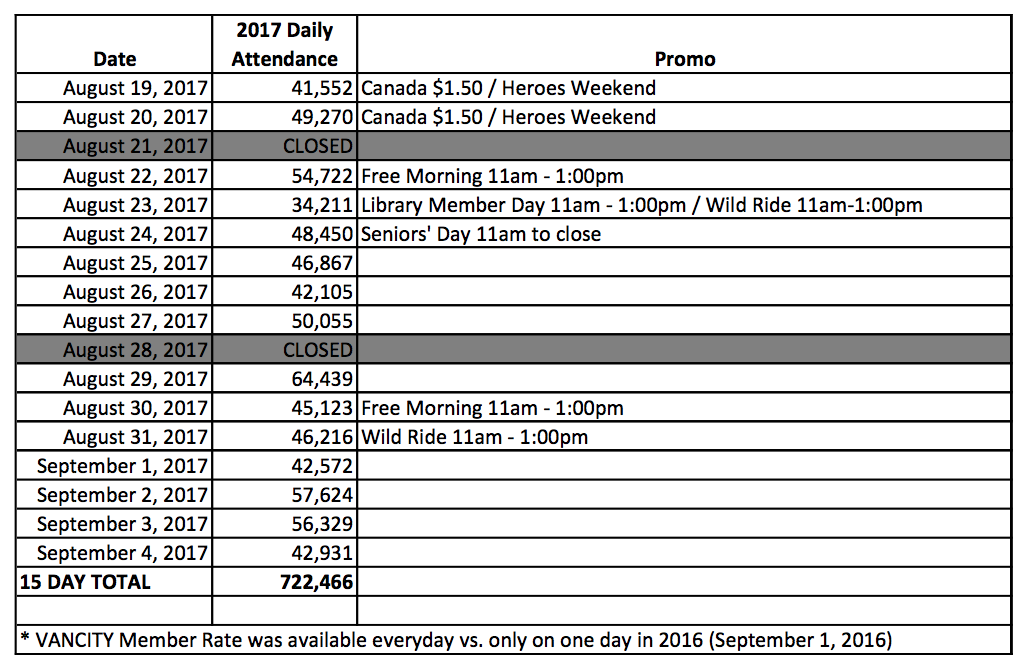NDP drags feet on banning big money, gives Liberals a chance to sling mud
Bob Mackin
The slower they are at banning corporate and union donations from politics in B.C., the more the NDP government will face a grilling like the one on Sept. 12 in Question Period.
The BC Liberals, who set new highs in fundraising revenue and new lows in ethics during their 16-year dynasty, put Surrey Panorama MLA and Citizens Services minister Jinny Sims on the spot. Sims was front and left-of-centre in a widely seen photograph from a Sept. 6 event at trucking company owner Kulwant Dhesi’s Surrey house.
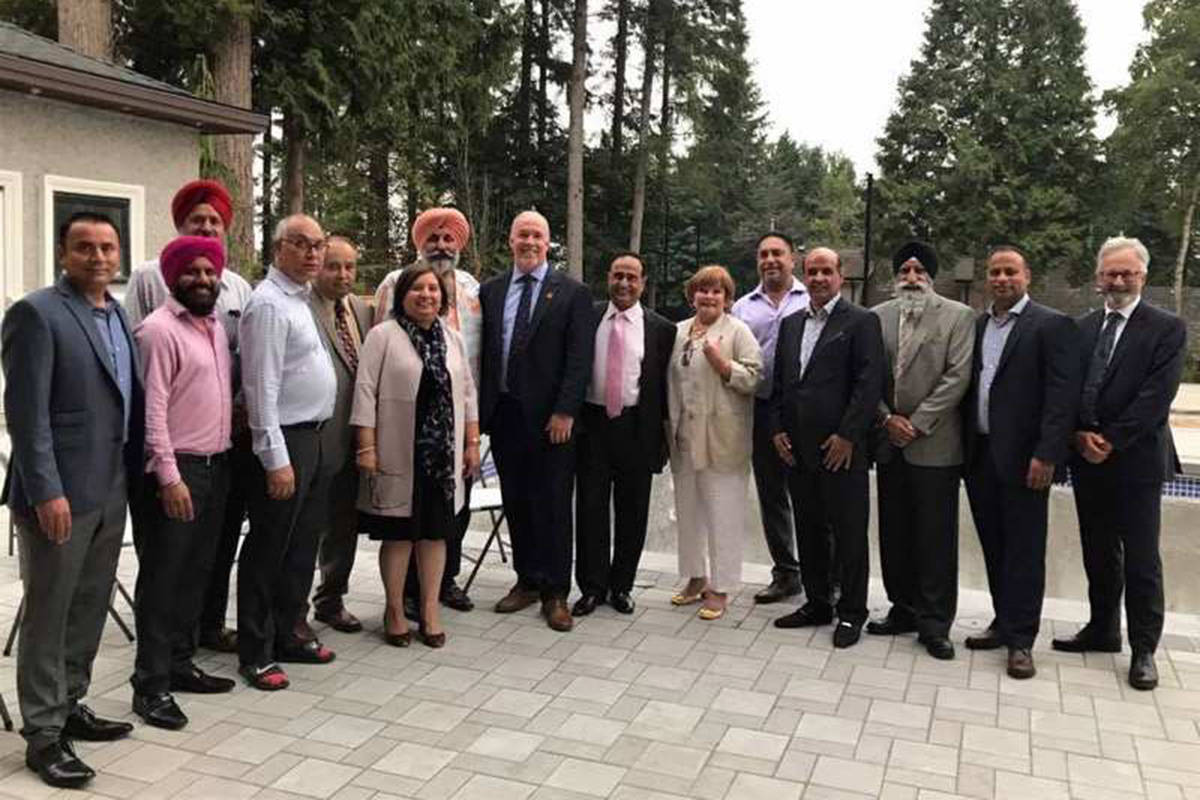
Sims, Horgan, Hepner and Meggs in Surrey Sept. 6.
The photograph included convicted gunman Maninder Gill (over Sims’s right shoulder, without a turban) and Jawahar Padda (second from left), a pizzeria owner who faces firearms and assault charges. Also smiling for the camera were Premier John Horgan, his chief of staff Geoff Meggs, and Surrey Mayor Linda Hepner.
Said Sims to Johal: “I was at a private event. I was not aware of the full guest list, and I was not aware that Maninder Gill would be in attendance. Anyone who knows me understands that I abhor violence. I have spent my life fighting against violence of all types. This man was convicted of a very serious crime that I do not condone in any way. He should not have been there.”
Johal reminded Sims of the time in February 2013 when she awarded Radio India’s Gill the Queen’s Diamond Jubilee medal for community service (60,000 of the royal trinkets were handed out by politicians all over the country in 2012 and 2013). In a statement to media at the time, Sims claimed she was unaware of Gill’s charges for shooting Harjit Atwal outside the Guru Nanak Sikh Temple in Surrey in 2010: “I recognize the seriousness of the crime he has been accused of committing, and apologize to those who were offended that he was presented with the medal.”
Johal referred to the event as a cash-for-access fundraiser, but Sims did not contradict him. She simply called it a “private event” twice.
Ex-Finance Minister Mike de Jong — no stranger to fundraising follies himself — joined the dog-pile. Yes, that’s the same de Jong whose staff had this reporter escorted out of the Wall Centre last Oct. 12 during his own cash-for-access elbow-bend.
“Look, this is the party that was dripping with sanctimony on this issue — day after day, week after week, came in here speaking about this issue,” de Jong said. “Not only are they now ramping up their own cash-for-access program; the minister seems to be at the forefront of the new cash-from-convict program.”
Sims, further pressed, misspoke: “No money has been donated by that man to the NDP. I abhor violence and any who take part in it, and he should not have been there.”
Oh, really? Elections BC shows five $1,000 donations by Radio India (2003) Ltd. to the NDP from 2007 to 2011. Maninder Singh Gill (who is appealing his four-year jail sentence) is listed as the sole owner. Meanwhile, Padda made $7,000 in donations to the NDP from two of his companies, most recently for $5,000 on March 23. Donations received after the 2017 election will be disclosed next April.
Horgan got up in the Legislature and said, like Sims, that he was unaware of the guest list, “aside from the mayor of Surrey and a handful of councillors, who I was having an opportunity to meet and talk about making life better for the people who live south of the Fraser — taking tolls off the Port Mann Bridge, for example, so life will be better for people on that side of the House,” he said.
“I had an opportunity to talk to the mayor of Surrey about getting 7,000 kids out of portable classrooms that have been building up on the watch of the government on the other side.”
“I took advantage of an opportunity, not at a fundraiser but to meet with business leaders in Surrey that are well known to many over on that side, to meet with the mayor of Surrey and to talk about making life better for British Columbians.”
NDP president Craig Keating also denied it was a fundraiser.
But that does not necessarily mean there were no funds being raised.
A source told theBreaker that attendees invited by Dhesi were encouraged to donate $5,000 each to the NDP and more than $50,000 was raised. Neither Dhesi, Meggs nor Prem Vinning (third from right) returned calls from theBreaker. Vinning is a BC and federal Liberal powerbroker in the South Asian community, yet he was invited to Horgan’s swearing-in on July 18.
Horgan hosted a $500-per-person golf fundraiser on Aug. 24 at Bear Mountain in Langford. He is also hosting a $525-per-person “Leader’s Levee” at the Hotel Vancouver on Sept. 22. Green leader Andrew Weaver sarcastically called it the “leader’s levy.”
Johal, a Tsawwassen resident who narrowly won the seat in Richmond-Queensborough, is a former Global reporter who often covered BC Liberal cronyism and corruption before quitting to lobby for the LNG industry. He has not responded to repeated queries from theBreaker about various aspects of his switch to politics, including the six-figure fundraising quotas set by 2017 campaign co-chair Rich Coleman for those, like him, who were appointed as candidates for the May 9 election.
Oliver Lum, Hepner’s spokesman, said she did not pay to attend and called it a “mistake on her part” to be photographed in a group with Gill. Lum said Hepner was not aware that he would attend.
The RCMP and special prosecutor David Butcher continue to investigate indirect donations made to the BC Liberals from lobbyists. The NDP insist they will table a bill this month to ban corporate and union donations, prohibit donations from outside British Columbia and set a maximum amount for donations. During the election campaign, Horgan had said it would be the first order of business.
Bob Mackin The slower they are at






